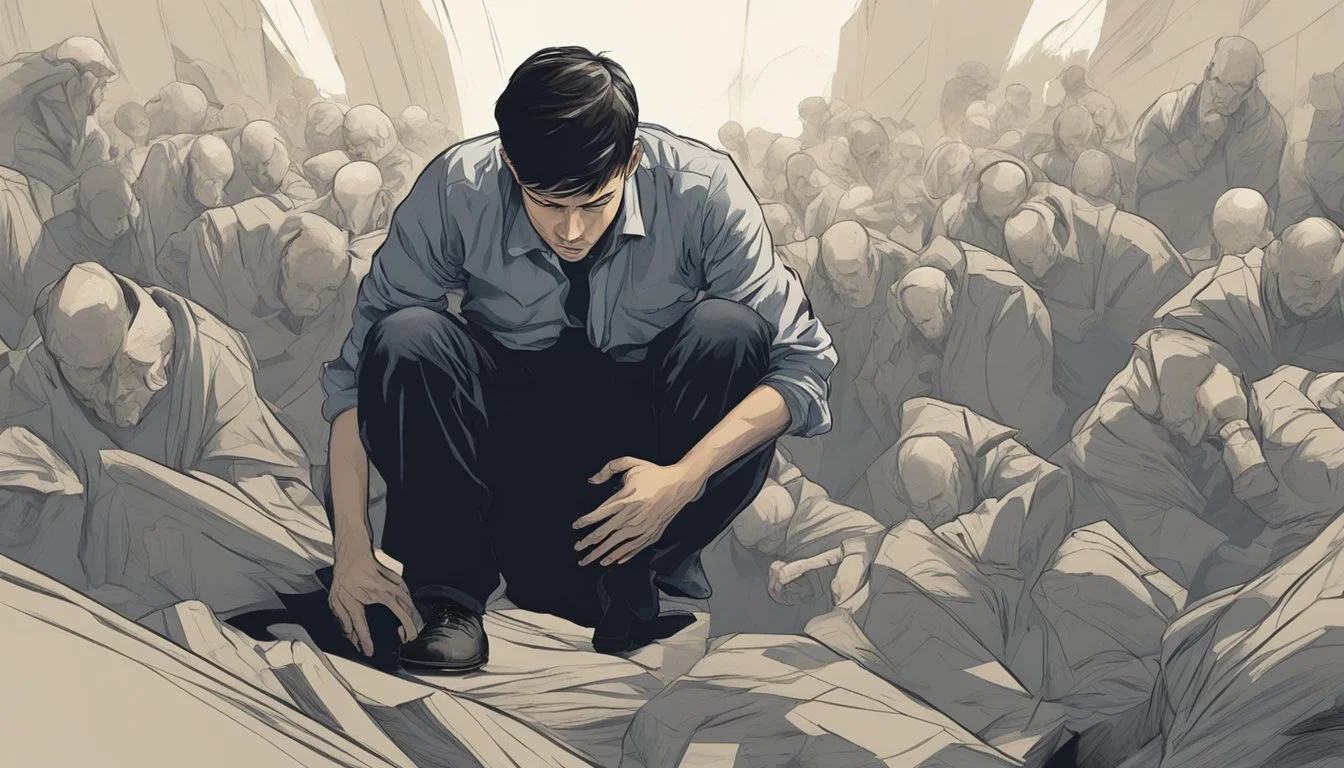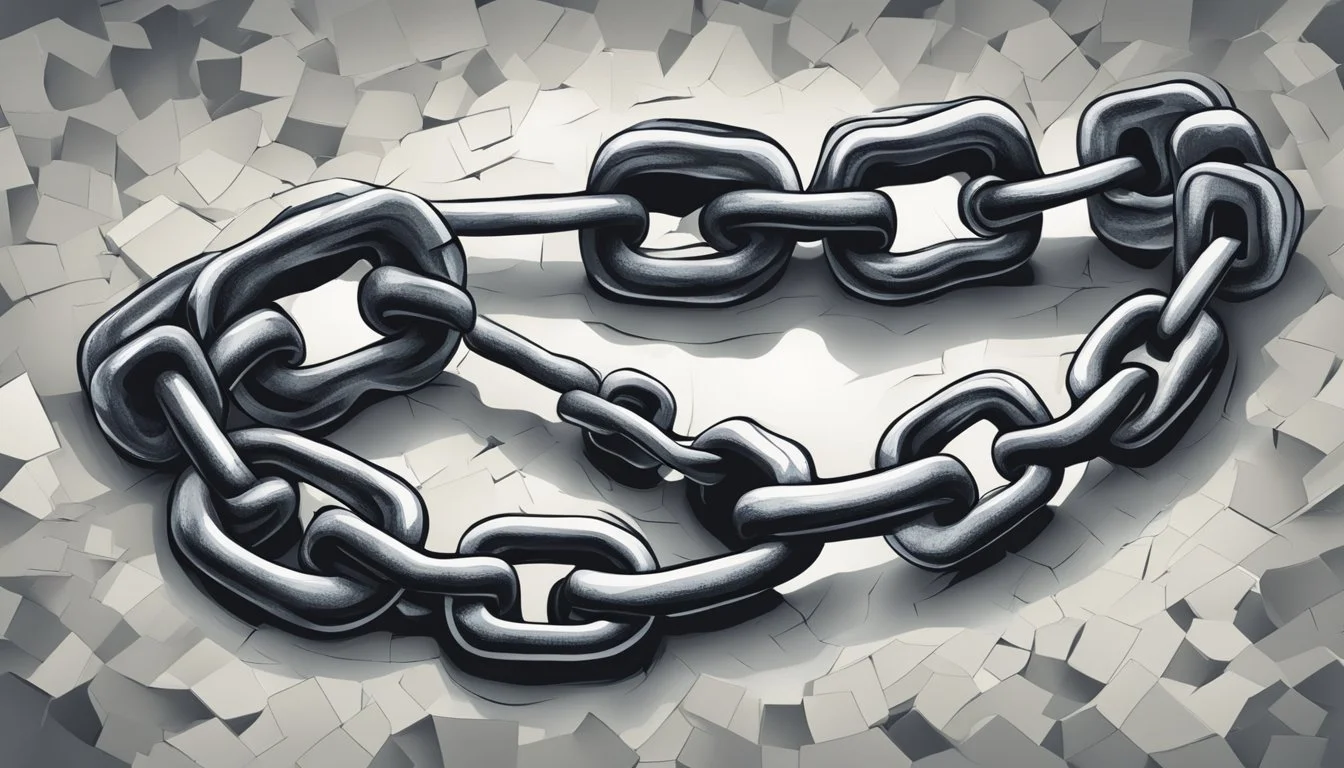14 Signs You May Be Experiencing Historical Trauma
Understanding the Long-Lasting Effects
Historical trauma, an inherited emotional wounding passed down through generations, continues to impact individuals and communities today. It can manifest in various ways, affecting mental and physical health, often without the person fully understanding the root cause.
Understanding the signs of historical trauma is crucial for recognizing and addressing its profound effects. This article delves into 14 indicators that you or someone you know may be experiencing this deeply rooted trauma. Recognizing these signs can be the first step towards healing and breaking the cycle of inherited pain.
1) Recurring Nightmares
Recurring nightmares are often a significant sign of historical trauma. These intense dreams might stem from past traumatic events and can disrupt sleep patterns regularly.
These nightmares can be linked to various causes such as daytime stress, anxiety, past trauma, and certain sleep disorders. Individuals often wake up feeling distressed or anxious, impacting their day-to-day life.
Studies indicate that experiencing childhood trauma can lead to recurring nightmares in adulthood. These dreams may be vivid, replaying distressing events or featuring similar emotional intensities.
Nightmares are also symptomatic of post-traumatic stress disorder (PTSD). This condition, often triggered by traumatic experiences, can cause frequent night terrors that affect sleep quality.
If these nightmares persist, seeking medical advice is crucial. Addressing them early can prevent further psychological and physical health issues.
Stress and anxiety management techniques, such as therapy or relaxation exercises, may help in reducing the frequency of these nightmares. It's essential to understand that recurring nightmares are not just a disturbance but can be an indicator of deeper unresolved trauma.
For more information, consider exploring the detailed insights provided by PsychCentral and Medical News Today.
By addressing the root causes early, individuals can work towards better sleep health and overall well-being.
2) Intense Anxiety in Certain Situations
Individuals experiencing historical trauma often face intense anxiety in specific situations. This anxiety can surface without an obvious trigger that connects directly to the historical trauma. Instead, it might arise in everyday settings that feel unpredictable or somehow unsafe.
This form of anxiety can manifest as severe worries or irrational fears. For some, this anxiety is a reminder that past events are still affecting their present mental state. The trauma has a lingering impact, making certain situations feel overwhelming.
An individual's nervous system might remain in a heightened state of alertness. This constant state of vigilance can cause hyperarousal, which complicates navigating even routine environments. Anxiety may also result in physical symptoms such as increased heart rate, sweating, or shallow breathing.
Flashbacks or intrusive thoughts might intensify the anxiety, triggered by smells, sounds, or other sensory cues. These reactions are often automatic and outside of the person's control, making it crucial to acknowledge the role historical trauma plays in these experiences.
For more information on severe anxiety and its impact, visit Verywell Mind's article on severe anxiety.
3) Feeling Disconnected from Your Culture
One of the signs of historical trauma is feeling disconnected from your culture. This may manifest as a sense of alienation or feeling estranged from cultural traditions and practices.
Individuals might struggle to identify with their cultural heritage or feel a sense of loss regarding their ancestors' customs and stories. This disconnection can also lead to a lack of participation in cultural events or ceremonies.
This feeling can often result from the traumatic impact of historical events such as colonization, forced migration, or cultural suppression. These historical disruptions sever the link between individuals and their cultural roots.
Experiencing this disconnect can impact a person's sense of identity and belonging. It may lead to feelings of isolation and confusion about where they fit within their cultural community.
Organizations such as Mind highlight how disconnection from one's surroundings can be linked to broader dissociative experiences.
Connecting with cultural communities and seeking support from those with similar experiences may help alleviate feelings of disconnection. Engaging in cultural activities and learning about one's heritage are also beneficial steps.
4) Emotional Numbness
Emotional numbness is a common symptom of historical trauma. Individuals may find themselves unable to fully engage in daily life. They may feel detached from their own emotions.
People facing emotional numbness often have difficulty experiencing positive feelings. Happiness, excitement, or even simple joy can feel out of reach. This can lead to a sense of being emotionally flat.
Feeling distant or disconnected from others is another sign. Interpersonal relationships may suffer as a result. Even close family and friends can feel like strangers.
Recognizing these signs is vital for identifying and addressing historical trauma. Emotional awareness can be a key step towards recovery. For more on emotional numbness, visit Psych Central.
5) Difficulty Maintaining Relationships
Individuals experiencing historical trauma often struggle to maintain stable relationships. Trauma can cause a person to feel unsafe, leading to a tendency to mistrust others. This lack of trust can hinder emotional connections.
Survivors may find it hard to believe in the possibility of a genuinely loving attachment. Their trauma convinces them that they are unworthy of love and that intimacy is dangerous.
Emotional dysregulation, a common symptom of complex PTSD, can also disrupt relationships. This condition includes a negative self-image and dissociation, leading to confusion and strain in interactions with loved ones.
The emotional aftermath of trauma affects the ability to communicate effectively. Survivors might face challenges expressing their needs or emotions, which can lead to misunderstandings and conflicts.
For more details on how trauma impacts relationships, visit Verywell Mind.
Feelings of helplessness and anxiety can further complicate relationships. The constant state of fear might prevent individuals from fully engaging with their partners or friends.
Such persistent emotional challenges can make sustaining long-term relationships difficult. Addressing these issues often requires professional support and therapy to foster healthier connections.
6) Persistent Sorrow or Grief
Persistent sorrow or grief can be a sign of historical trauma. This deep emotional distress often stems from significant past events and can manifest as prolonged or complicated grief.
Individuals experiencing this type of sorrow may find it difficult to move on from the loss of loved ones, historical injustices, or cultural disruptions. The feelings of grief are intense and ongoing.
This condition can be mirrored in prolonged grief disorder, which includes profound feelings of loss and profound emotional distress. Additionally, the persistent focus on these losses can greatly impact daily functioning.
Historical trauma often magnifies these feelings, making them overwhelming. These emotions can be recurrent, as seen in cases of chronic sorrow, where non-death-related losses continually resurface, further embedding grief into one's existence.
The persistent sorrow or grief from historical trauma isn't just emotional but can also lead to physical symptoms. Anxiety, depression, and other forms of mental health issues are commonly associated. As noted by the Mayo Clinic, signs include intense sorrow, rumination over the loss, and an inability to accept the death or loss.
Addressing these grief responses is crucial for overcoming the impact of historical trauma. Professional help and community support can play key roles in the healing process.
7) Avoidance of Reminders of the Trauma
Avoidance is a common response to historical trauma. Individuals may steer clear of places, events, or objects that remind them of past traumatic experiences. This behavior can help them manage distressing emotions temporarily, though it can also keep them from processing the trauma fully.
Emotionally, people might avoid thinking about the traumatic events altogether. They may distract themselves or engage in activities to keep their minds occupied. This type of emotional avoidance is internal and not always visible to others.
Physical avoidance is another form, where individuals deliberately stay away from potential triggers. For instance, someone who has experienced war might avoid loud noises or crowded places.
This pattern of avoidance is a symptom of post-traumatic stress disorder (PTSD). People with PTSD might avoid specific thoughts or feelings to prevent experiencing intense fear or distress. It serves as a coping mechanism but might require professional intervention if it disrupts daily life.
Understanding trauma reminders is essential. Memories can be triggered by various cues including places, sounds, or smells, leading to avoidance behaviors. Knowledgeable mental health professionals can offer strategies to cope with these symptoms and aid in the healing process.
8) Feeling Hopeless or Helpless
Individuals experiencing historical trauma often feel a pervasive sense of hopelessness. This can stem from systemic issues like chronic poverty or repeated discrimination. They may believe that no matter what they do, their situation will not improve.
Helplessness is another common symptom. People might feel powerless to change their circumstances or escape from difficult situations. This can be amplified by past experiences where efforts to improve their lives were met with failure or resistance.
For many, feelings of hopelessness are closely linked to mental health conditions. Depression and anxiety are prevalent among those affected by historical trauma. They may struggle to find motivation or see a positive future, further entrenching these feelings.
In addition, communal trauma, such as experiencing a global pandemic or social unrest, can exacerbate these emotions. During these periods, individuals might feel an acute lack of control over their environment and future. This can intensify the sensation of being stuck or lost.
Understanding these feelings and recognizing their origins is the first step toward addressing them. It's important for those experiencing these symptoms to seek professional help. A mental health professional can provide strategies to manage these challenging emotions and begin the healing process.
9) Frequent Flashbacks
Frequent flashbacks can be a common symptom of historical trauma. During these episodes, individuals might feel as if they are reliving a traumatic event from the past. These flashbacks can be triggered by various stimuli such as specific sounds, smells, or even places that remind the person of the traumatic experience.
Emotional flashbacks are characterized by intense feelings of fear, shame, sadness, or abandonment. People may feel overwhelmed and unable to control their emotions, feeling as though they are "taken over" by the past. This can make it difficult to stay present and engaged in current activities.
Flashbacks can vary in duration; they may last for a few minutes or extend over several hours, disrupting daily life. Physical symptoms such as a racing heart, muscle tension, or nausea can accompany these emotional experiences. This response is often a defense mechanism the mind uses to protect against further trauma.
Individuals may also have internal triggers such as feeling sick, tired, or hungry that can set off a flashback. Coping strategies can include grounding techniques, mindfulness, and seeking support from mental health professionals. Recognizing the signs and learning effective ways to manage flashbacks can significantly improve one's quality of life.
10) Physical Symptoms like Headaches or Stomach Issues
Historical trauma can manifest in various physical symptoms. Many individuals experiencing this type of trauma report frequent headaches. These can range from mild tension headaches to more severe migraines.
Stomach issues are another common physical symptom. Anxiety and stress related to historical trauma can lead to stomach pain, nausea, or other digestive problems. This can significantly impact daily life and well-being.
Sleep disturbances are often linked with these physical symptoms. Insomnia or fragmented sleep due to stress can exacerbate headaches and digestive issues.
Understanding these symptoms is crucial. Those affected might experience a combination of these physical manifestations, impacting their overall health.
In some cases, individuals may not directly associate these physical symptoms with historical trauma. Recognizing this connection can help in seeking appropriate support and interventions.
For more details on how physical symptoms like headaches and stomach issues relate to anxiety, you can explore articles from Psych Central and Healthline.
11) Struggles with Identity
Individuals experiencing historical trauma often face significant struggles with their identity. The lasting impacts of past trauma can lead to a fragmented sense of self. This is particularly true for groups who have endured systemic oppression and violence over generations, such as LGBTQ+ communities and Black Americans.
Cultural identity may become a source of internal conflict. For many, the inherited pain and suffering can overshadow positive aspects of their heritage. This conflict can create feelings of alienation both within their cultural group and in broader society.
The phenomenon of epigenetic inheritance suggests that the descendants of those who faced severe trauma may inherit a predisposition to stress or anxiety. This biological influence can compound the difficulty of forming a stable identity, as individuals may grapple with emotional burdens they did not directly experience.
Struggles with identity are also reflected in mental health challenges. There can be a persistent search for belonging and validation, complicated by the societal stigmas and prejudices that continue to exist. Navigating this terrain requires significant emotional resilience and support.
Understanding these identity struggles is essential for providing effective mental health care and fostering inclusive communities. Addressing these challenges involves acknowledging the deep-rooted issues and offering empathy and resources to those affected. For more insights, one can explore the complexity of historical and collective trauma among LGBTQ+ people.
12) Feeling Overwhelmed by Daily Tasks
Feeling overwhelmed by daily tasks is a common symptom for those experiencing historical trauma. This form of trauma can lead to an ongoing sense of stress and fatigue, making even simple chores seem insurmountable.
Individuals may find themselves paralyzed by everyday responsibilities such as cooking, cleaning, or personal care. This could result in procrastination or avoidance behaviors.
Physical symptoms often accompany these feelings, including rapid heartbeat, headaches, and an upset stomach. These symptoms can exacerbate the feeling of being overwhelmed.
Mental and emotional exhaustion also play a role. Constant stress can lead to difficulty focusing and decision-making. The mind becomes preoccupied with intrusive thoughts and worries.
Managing such overwhelming emotions is challenging but crucial. Techniques such as mindfulness and grounding exercises can help. Staying present and breaking tasks into smaller, manageable steps can reduce stress.
Poor sleep quality is another outcome of feeling overwhelmed. The body's natural sleep-wake cycle can become disrupted, leading to insomnia or restless sleep. This further impacts daily functioning.
Feeling overwhelmed can affect relationships and social interactions. People may withdraw from loved ones, feeling too exhausted to engage.
If daily tasks become consistently unmanageable, seeking professional help may be beneficial. Therapy and counseling can provide strategies and support.
13) Sense of Isolation or Loneliness
A sense of isolation or loneliness is a prevalent experience among those enduring historical trauma. Individuals may feel disconnected from others, even in social situations. This feeling can stem from the shared pain and suffering that is not always understood by those outside their community.
People experiencing this type of trauma might have trouble forming and maintaining close relationships. The emotional burden can create barriers to social interactions and lead to social withdrawal.
The National Institute on Aging highlights that social isolation and loneliness are distinct but related concepts. Loneliness involves distress due to perceived social isolation, while social isolation refers to an objective lack of social connections.
Social isolation can contribute to mental health issues such as depression and anxiety. Prolonged isolation and loneliness can also affect physical health, increasing the risk of conditions like heart disease and cognitive decline.
By recognizing the signs of isolation or loneliness linked to historical trauma, communities and individuals can better address these feelings. Professional support and community-based initiatives may help mitigate these effects and promote a stronger sense of connection.
14) Low Self-esteem
Low self-esteem manifests as a lack of confidence and self-worth. This negative self-perception can stem from historical trauma, where past adverse experiences deeply affect how individuals view themselves.
For instance, those who have endured significant trauma may internalize beliefs that they are unlovable or inherently flawed. This can make them feel undeserving of positive experiences or relationships.
Symptoms of low self-esteem include self-doubt, persistent negative thoughts about oneself, and difficulty accepting compliments. These feelings can hinder success in personal and professional relationships.
Historical trauma can amplify these feelings. Intergenerational trauma, in particular, can perpetuate a cycle of low self-esteem across generations. It's crucial to recognize this pattern to begin the healing process.
People experiencing low self-esteem might often seek validation from external sources. This can lead to dependency on others for their sense of worth, which is not sustainable.
Therapeutic interventions, such as counseling, can help address these deep-rooted issues. Understanding the origins of low self-esteem is the first step towards improving mental health and fostering a healthier self-image.
For more information on how past trauma impacts self-esteem, visit this helpful article.
Understanding Historical Trauma
Historical trauma refers to the multigenerational and communal impacts of traumatic events experienced by specific racial, ethnic, or cultural groups. It has profound effects on the mental and physical health of contemporary members of affected groups.
Definition of Historical Trauma
Historical trauma is the collective trauma experienced over generations by a group of people who share a common identity. This trauma is often rooted in major oppressive events and continues to affect the descendants of those who initially suffered.
For example, the enslavement of Black and African American people and the Holocaust are significant instances that have caused deep, lasting wounds. This trauma is shared by an entire community rather than being limited to individuals. Modern members of these communities may exhibit trauma symptoms, even if they were not present at the original events.
Roots and Causes
The roots of historical trauma are found in events marked by extreme oppression, violence, and injustice. Examples include the forced assimilation and displacement of Indigenous peoples through U.S. Indian boarding schools and systemic racism encountered during eras such as Jim Crow and segregation.
These events disrupt cultural continuity, resulting in the loss of identity and community trauma. Each generation inherits the unresolved grief and emotional wounds from those who lived through the original traumatic incidents.
Discrimination against LGBTQIA2S+ individuals also contributes to historical trauma, creating significant psychological stress and societal marginalization.
Historical trauma not only emphasizes past events but also the continued systemic oppression and inequality, making healing and recovery continuous challenges for affected communities.
Effects on Mental and Physical Health
Historical trauma can have profound and long-lasting effects on both mental and physical health. This trauma often manifests in unique ways, impacting psychological well-being and causing various physical health issues.
Psychological Impacts
One significant impact of historical trauma is the development of mental health disorders such as post-traumatic stress disorder (PTSD). Individuals experiencing historical trauma may suffer from flashbacks, nightmares, and severe anxiety. Such symptoms are often accompanied by feelings of helplessness and horror, as traumatic events deeply shake their psychological foundation. For more information on PTSD, refer to this detailed article on Post-traumatic stress disorder.
Depression is another common psychological outcome linked to historical trauma. It's not unusual for affected individuals to feel a pervasive sense of sadness and hopelessness. Moreover, these mental health issues can lead to behaviors such as substance abuse, as people may turn to drugs or alcohol to cope with their experiences.
A sense of mistrust can develop, especially towards institutions perceived as responsible for the trauma. This mistrust can hinder one's ability to seek help, complicating recovery and support efforts.
Physical Health Consequences
The physical consequences of historical trauma are just as serious. Chronic stress from traumatic experiences can lead to long-term health issues such as heart disease and hypertension. According to research, experiencing trauma significantly increases the risk of these conditions, highlighting the connection between mind and body.
Additionally, individuals may suffer from sleep disturbances, including insomnia and irregular sleep patterns. Such issues can further exacerbate mental health problems and contribute to physical fatigue.
Trauma can also weaken the immune system, making individuals more susceptible to infections and illnesses. There is evidence suggesting that high stress levels negatively affect immune function, illustrating the widespread impact of historical trauma.
For more detailed information on these health impacts, you can explore this article on the Long-Term Effects of Trauma.













